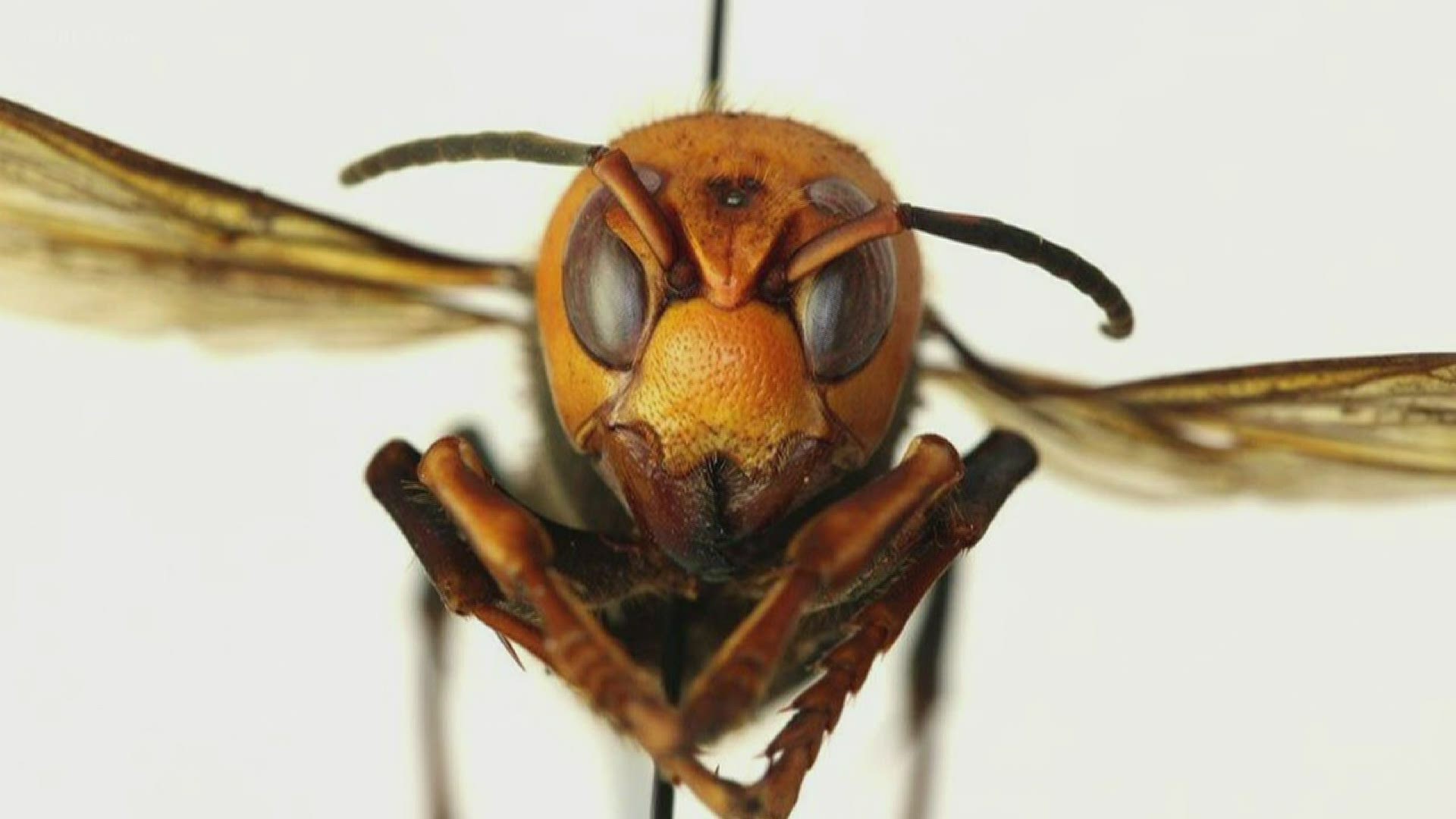TENNESSEE, USA — The state of Tennessee has a plan to trap the Giant Asian Hornet, the world's largest species of wasp.
Tennessee State Apiarist Michael Studer spoke to 10News over the phone, and said a plan has been in place for about two years to set traps for invasive wasps and hornets this summer.
There has been a plan in place for about 2 years to set traps for invasive wasps and hornets this summer. Now, that plan will aim to target Giant Asian Hornets.
Traps will be set by July 1 and will be set statewide.
While there will definitely be traps in East Tennessee, specific locations are not yet determined.
Studer said the Giant Asian Hornets are not believed to be in Tennessee, and that only two have been found in Washington State.
The state is releasing more information about their trap plan later on Friday.
The Tennessee Department of Agriculture said Friday there is no evidence the Asian Giant Hornet is in Tennessee, as there have been no confirmed sightings yet. It said other species of hornets, such as the European hornet and cicada killer, are extremely common in the state. It is working with beekeepers and people to identify those hornets.
Entomologists at the University of Tennessee said they have been overwhelmed recently with people sending in pictures of European hornets mistaken for the Asian Giant Hornet.
Furthermore, the danger of Asian Giant Hornets to people is generally no greater than other hornets -- despite the headline-grabbing 'murder hornet' nickname going around. The TDA said the hornets do not attack people unless threatened.
People who want to have a hornet identified should email their photos to tn.agriculture@tn.gov.

